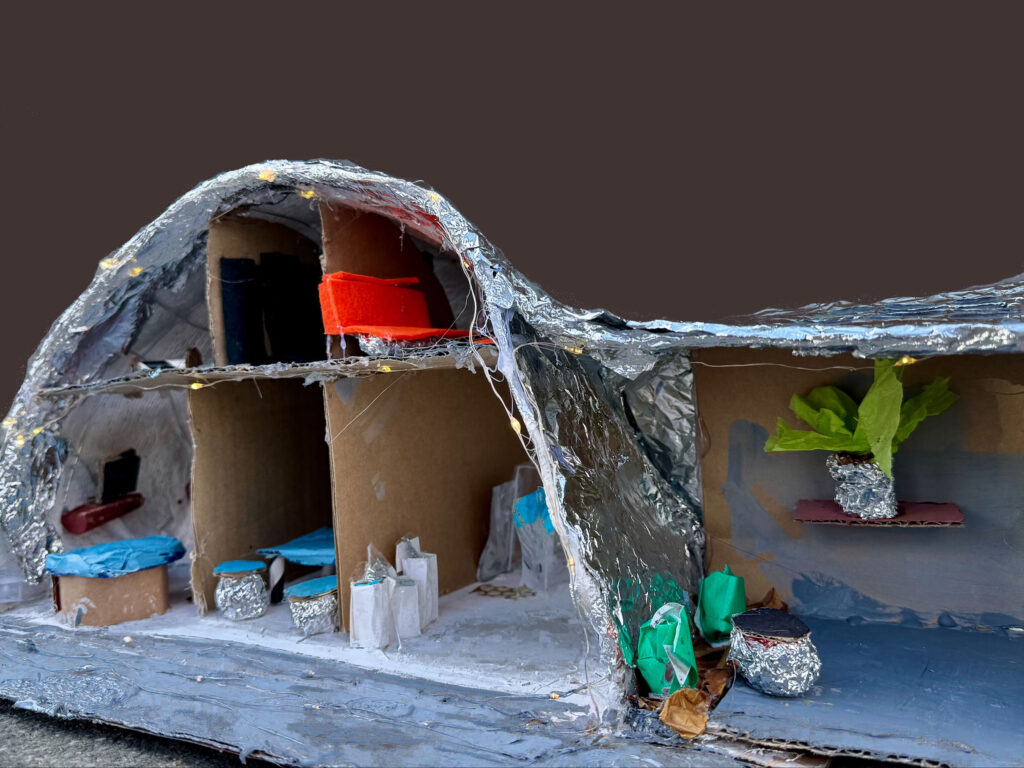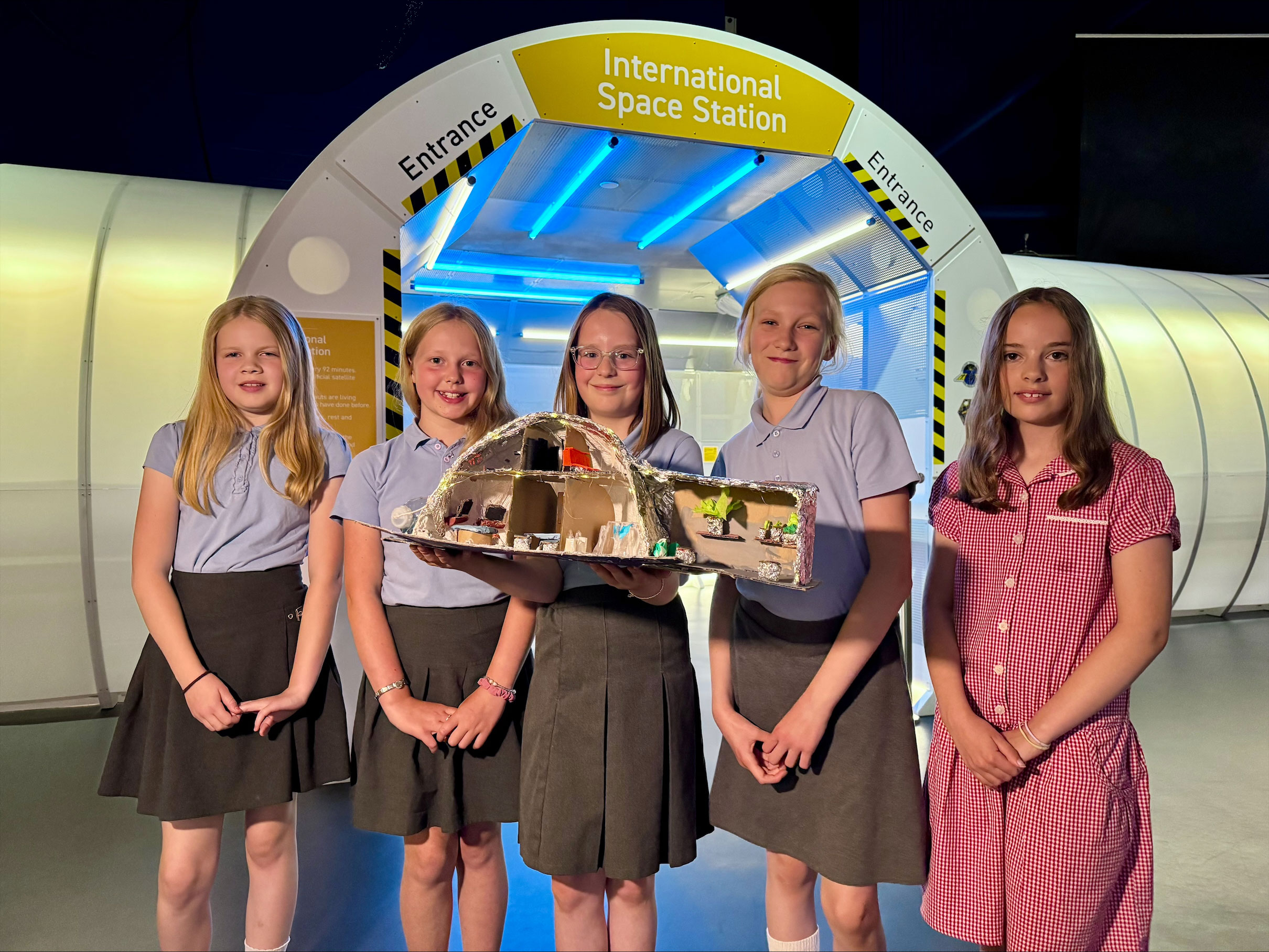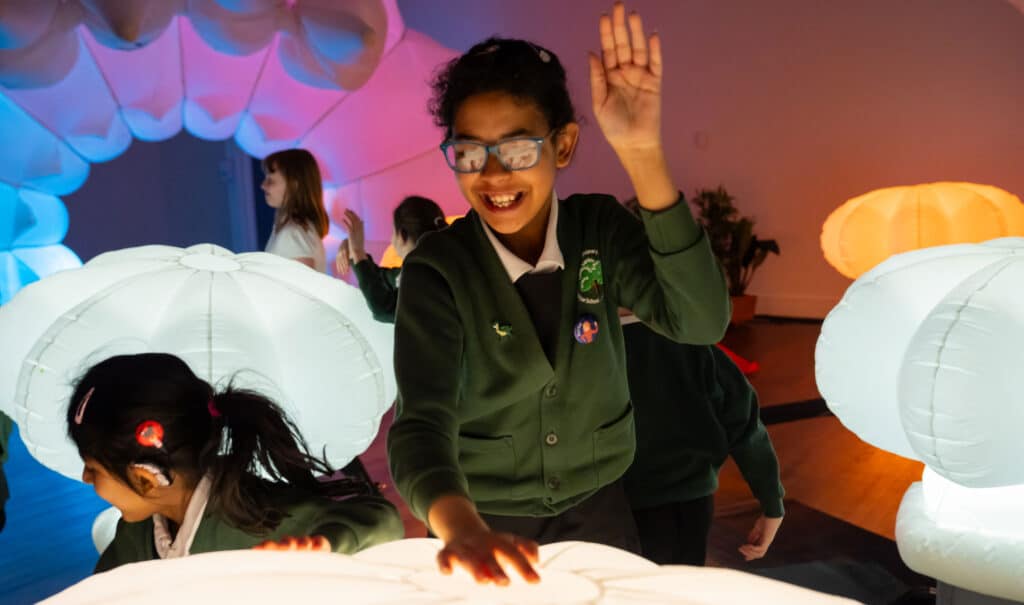
Young space explorers docked at Newcastle’s Life Science Centre today to share their creative visions of moon bases for the future.
To coincide with Life’s 25th birthday celebrations, 60 schools in its Space Explorers programme were invited to take part in a special competition: Moon Base Challenge. Groups of pupils aged 9 to 11, were given a box of materials and a lesson plan to help them design and build a model of a moon base of the future and then put it through its paces in a series of challenges.
The top 10 entries were invited into Life today (30 June) for a space-themed day with workshops and a science show before a panel of STEM professionals working in space science at regional aerospace company Airbus and Northumbria University, selected the overall winner.
The winning school was St Mary’s Catholic Primary School, in Barnard Castle, with the judging panel praising the entry adding:
“Wow! I can see how much effort has gone into creating this moon base. You should feel incredibly proud of your efforts.
You have considered all aspects of living on the moon – how harsh living there would be, zero gravity, communication, getting supplies and power to the base, growing food, making sure there’s plenty of space inside, and more.”

“Many schools across the region are in rural or urban deprived areas. Our Space Explorers programme reaches children who may have never considered space science as a future career option. The Moon Base Challenge project offers these kids a new and exciting hands-on way to do just that. The creativity and thoughtfulness in the entries has been fantastic.”
Linda Conlon, Chief Executive of the International Centre for Life
Life’s Space Explorers programme, funded by the UK Space Agency and Edina Trust, targets schoolchildren in underserved areas to inspire them to consider the breadth of career opportunities available in the expanding UK space sector.
The programme includes a visit to the school from the Life team with their mobile planetarium, a day in the science centre – including time in Space Zone – and a curriculum linked space workshop. The pupils also get the opportunity to have live online chats with scientists working in space-related industries.

